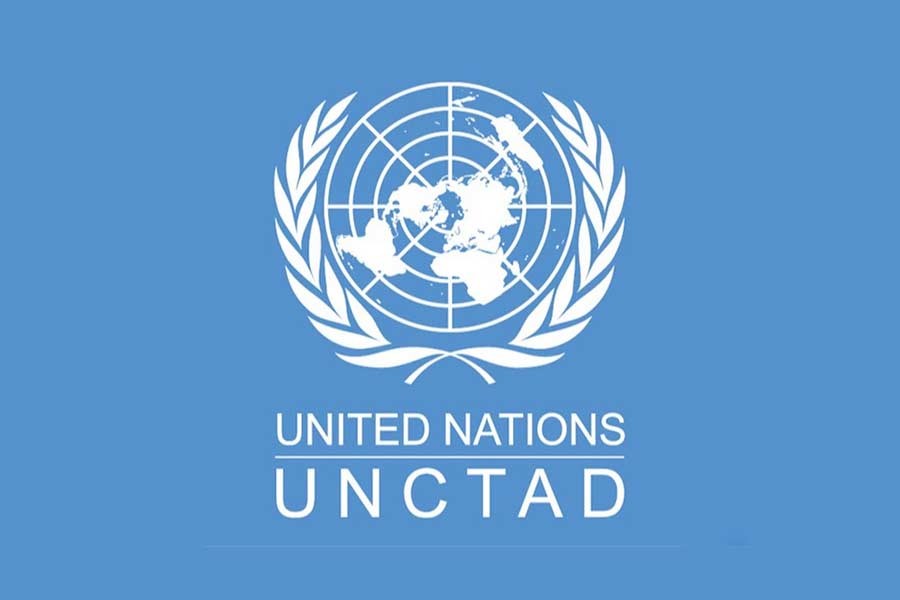COVID-19 outbreak has heightened the need to boost pharmaceutical production in poor countries as lack of access to essential medicines is a tragic reality for many families in developing nations, according to UNCTAD.
“Poorer countries should boost local productions to ensure availability of prospective COVID-19 vaccines,” the United Nations Conference on Trade and Development (UNCTAD) on Wednesday said in a statement amid a desperate race to develop inoculations against the coronavirus, reports BSS.
“Hope is growing for a miracle breakthrough as over 100 projects to develop a COVID-19 vaccine was underway around the globe, eight of them entering the clinical stage,” the statement said.
But, it said, the hectic race simultaneously sparked concerns over “who would and would not have access to the shot, if and when one (of the vaccines) is approved”.
The UNCTAD statement said the UN agency teamed up with the WHO to seek ways to respond to the poorer economies need to access to the essential COVID-19 medicines including the prospective vaccines as the pandemic heightened need for pharmaceutical productions in many backward countries.
“Once a vaccine for COVID-19 is available, the massive demand is likely to outstrip supply quickly,” UNCTAD’s director of investment and enterprise James Zhan said while opening an online seminar with World Health Organization (WHO).
He added: “If the pharmaceutical industry cannot keep up with demand, populations in poor countries will be the ones left behind.”
The UNCTAD statement came amid speculations and remarks by drug makers and health authorities in different developed countries on priorities of nations to have access to a prospective vaccine.
French pharmaceutical giant Sanofi Pasteur last month said the first doses of their vaccine, if approved, would go to the United States because its government had invested first in the required research and development.
More than 140 world leaders and public figures, however, on the very next day signed an open letter calling for global public health interests to be given priority over nationalism and corporate profits.
The call for a “people’s vaccine” followed a European Union-led event that a week earlier had secured nearly US$8billion from governments within and outside the bloc to help ensure universal and affordable access to COVID-19 medication.
The World Health Assembly on May 19 took a historic resolution co-sponsored by more than 130 countries calling for equitable access to vaccines and treatments against the virus.
The UNCTAD, however, feared the resolution to provide temporary solution to the questions in view of “lack of productive capacity in developing countries” while discussions focused on the issue of patents and profits.
According to the WHO, nearly one third of existing vaccines against different diseases have fewer than four suppliers, while nearly two thirds have two or fewer prequalified products.
“COVID-19 has shown just how vulnerable medical product supply chains are when relying on a small number of manufacturers for raw materials and final products,” said Emer Cooke, director of the WHO’s regulation and prequalification department.
According to UNCTAD and the WHO, many developing countries need help to build their capacity to produce essential medical products, whether they are vaccines, antibiotics or personal protective equipment.
The two global agencies, however, noted that middle-income and low middle-income countries in Asia so far succeeded in establishing a standard local pharmaceutical industry but productive capacity remained largely untapped in Africa, where the majority of the least developed countries are located.
The WHO and several global healthcare experts and drug makers studying the anti-COVID-19 vaccines, however, remained skeptical how long it might take to develop an effective vaccine or whether it would be eventually be possible to find an inoculation.
Many of them expect a vaccine or vaccines to be available over the next several months with former US Food and Drug Administration (FDA) chief Scott Gottlieb today saying Covid-19 vaccine “will likely be a 2021 event”.
But expert speculations suggest several drug makers or research institutions could appear as winners simultaneously in the race at the end, instead of being one as some 100 vaccines are being studied in different phases across the world.
“More than one horse can win this race,” a Bloomberg analysis read adding that some vaccines might be extremely effective but even a less-effective one might work well enough to provide herd immunity in a wider population.
Other vaccines might as well be more appropriate particularly for health care workers, having exposure on the job, and need protection as soon as possible.
“If we end up with two, three, or four vaccines, that is good, since we have seven billion people (across the globe),” said Harvard vaccine researcher Dan Barouch, who leads one of the vaccine studies at the leading US university.
According to global media reports US drug maker Moderna’s experiment showed promising results in early human trials while the company last week announced that all 45 patients in its vaccine trial had developed antibodies against the coronavirus.
Moderna is amongst the top frontrunners in the race is set to move into the second phase of the clinical trials in the month of July despite some setbacks.
The Oxford University scientists said their trial indicated that a million doses of their experimental Covid-19 vaccine could be ready as early as September as it was spearheading the study jointly with pharma giant, AstraZeneca.
China made visible its strong presence in the race alone testing five vaccines simultaneously on human body while China’s President Xi Jinping promised to share any successful vaccine globally.
Several experts viewed China’s CanSino Biologics Inc as the strongest new contender in the global vaccine race.


